India’s use of misinformation debunked
Experts criticize the West for silence over New Delhi’s use of misleading campaigns
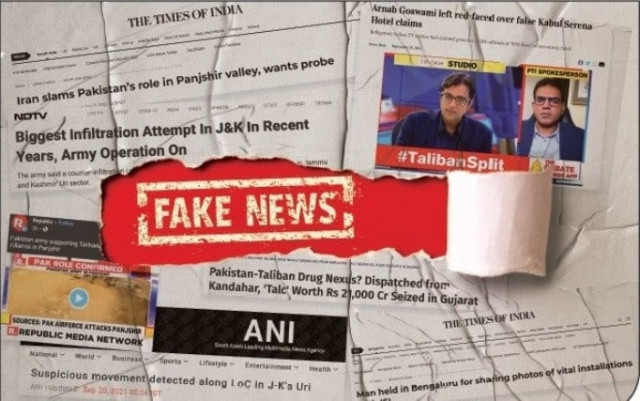
Despite being exposed for funding a long-running disinformation campaign against Pakistan last year, India continues to use its rumor mills to alter global opinion about its arch-rival in the region.
Details gathered by the Express Tribune show that more than 40 news items have been produced by mainstream Indian media outlets during this month alone. Each one of them paints Islamabad in a negative light -- particularly blaming it for the situation in Afghanistan.
While the spread of unverified information about Islamabad is a permanent feature in New Delhi’s playbook, it churns out more misinformation around key global events. The current surge in misleading news items has been timed around the collapse of the Ashraf Ghani government in Kabul and the subsequent withdrawal of US forces from Afghanistan.
“India is aware that the Western world is still shocked by the Taliban's lightning-fast takeover of Afghanistan and is actively looking for scapegoats. New Delhi, therefore, sees an opportunity to once again shape international perceptions against Islamabad by blaming Pakistan for what happened and what has followed since then,” said Andrew Korybko, a political analyst, who specializes in South Asian affairs and the relationship between the US strategy in Afro-Eurasia.
Read Brazen fake news leave Indian media red-faced
According to the Moscow-based expert, the narratives employed by New Delhi claim that Rawalpindi controls the Taliban. This campaign, Korybko said, is designed to make the world believe that Pakistan is responsible for everything the group does.
New Delhi sees an opportunity to once again shape international perceptions against Islamabad by blaming Pakistan for what happened in Afghanistan
Andrew Korybko, a political analyst, who specializes in South Asian affairs and the relationship between the US strategy in Afro-Eurasia
“Be that as it may, the facts contradict this interpretation of events. The Taliban is still politically partnered with the TTP even though Pakistan regards it as a terrorist group, which shows that Islamabad doesn't control them,” explained Korybko, who also specializes in China's Belt and Road Initiative and Hybrid Warfare. Pakistan, Korybko added, has continued to gently encourage the Taliban to gradually implement its promised reforms.
Since last year’s expose by the BBC, India has developed a reputation for spreading misinformation. In its damning news piece, the London-based broadcaster uncovered a 15-year long operation targeting key western organizations to serve Indian interests. Managed by an Indian entity, the largest network of disinformation, was being used to hammer Pakistan’s image.
A year later, India's information warfare against Pakistan continues and this time it has employed its domestic media outlets. Over the past month, India Today, NDTV, Republic TV, and CNN-News 18 have all been spreading the Narendra Modi government’s narrative against Pakistan.
On the long list of faux pas by its media, the claim made by Republic TV remains on top. In its prime time show, hosted by Arnab Goswami, the right-wing channel claimed that Pakistan Army officers were operating from the fifth floor of the Serena Hotel in Kabul -- which only has two floors.
The West holds India to different standards since it professes to be a democracy just like them
Andrew Korybko, a political analyst, who specializes in South Asian affairs and the relationship between the US strategy in Afro-Eurasia
Earlier, the same channel aired an exclusive clip showing air force jets attacking Panjshir. The channel went on to claim that the Pakistani air force was helping the Taliban in its attack on the valley.
The claims by Republic TV, which is known as the ruling Bhartiya Janata Party’s (BJP) mouthpiece, were instantly debunked by experts. Mohammed Zubair, the founder of Alt News and a fact-checker was the first one to draw attention to the channel’s false claim.
The 'exclusive video' of Airstrikes at Panjshir Valley, Zubair said, was from a video game called "Arma-3". Wilson Centre’s Michael Kugelman pointed out that India had used similar imagery during the Balakot crisis back in 2019.
Silence
Despite innumerable instances where India has been caught red-handed spreading misinformation, the West, which is usually very critical of such practices, remains silent.
When asked about why the West seems to be ignoring India’s role in spreading disinformation, Andrew Korybko said: “The West holds India to different standards since it professes to be a democracy just like them.”
Read Rashid slams Indian media for kicking up fuss on DG ISI's Kabul visit
“It's "politically incorrect" to acknowledge self-professed democracies' strategic employment of misinformation and other information warfare since this risks discrediting all those other countries which share similar systems,” Korybko explained by email.
Pakistan, the Moscow-based expert said, should continue to raise awareness of its pragmatic policy towards Afghanistan. “This will discredit India's information warfare operations,” he added.
Experts from Pakistan had similar views about India’s use of disinformation against Pakistan. New Delhi’s excessive use of fake news to advance its anti-Islamabad narrative, according to Hussain Nadim, the Executive Director of Islamabad Policy Research Institute, shows that the country is short on truth. “India is short on truth. Hence, it has to continuously rely on fake news to sell its narrative.”

The spread of misinformation, Nadim explained, is common in countries that have right-wing regimes. “The Modi government or for that matter any right-wing regime relies on the spread of misinformation. The first causality in such countries is truth.”
Such regimes, he said, rely on selling extremist hardcore narratives. “In India's case, the primary purpose of such campaigns is to mislead the domestic audience into believing that Pakistan is the worst enemy. This allows them to radicalize their voters to the point that they continue to vote for them.”
On the other hand, Hussain said the international audience -- particularly academics, policy makers, and those who hold important diplomatic offices, are constantly double-checking information coming from India.
Six years ago, Russia was criticized globally for the annexation of Crimea, but India got away with the annexation of occupied Kashmir in 2019. It was never considered as a matter of concern. So, India receives special treatment from Western powers because they want it as an ally. They don't want it to be neutral
Hussain Nadim, the Executive Director of Islamabad Policy Research Institute
When asked to comment on the Western silence over New Delhi’s use of disinformation campaigns, the Islamabad-based policy expert said the rules are relaxed when you’re an ally.
“Russia and China are the adversaries of the United States. So, there is much more scrutiny when it comes to any disinformation coming from those countries. When it comes to India, it has a more comfortable position with the Western countries because it claims to be the largest democracy and an ally -- particularly when we look at the US-China competition,” explained Hussain, adding that India can get away with spreading misinformation and even human rights violations and a number of other practices that the Chinese and Russians would be reprimanded for.
“Six years ago, Russia was criticized globally for the annexation of Crimea, but India got away with the annexation of occupied Kashmir in 2019. It was never considered as a matter of concern. So, India receives special treatment from Western powers because they want it as an ally. They don't want it to be neutral.”
Specific campaigns
Information gathered by the Express Tribune shows that the Indian government has also launched specific themed campaigns ahead of all major international events, including the UNGA and even around the Financial Action Task Force's (FATF) meetings to review Pakistan’s status.
Such campaigns, Dr. Talat Wizarat said, are not new. India has always used every opportunity to paint Pakistan as a villain and a rogue state. “The government in New Delhi believes that if they succeed in painting Islamabad as an adversary, it will automatically reflect positively on India and its role.”
The government in New Delhi believes that if they succeed in painting Islamabad as an adversary, it will automatically reflect positively on India and its role
Dr. Talat Wizarat, former chairperson of the Department of International Relations, University of Karachi
Almost all of India’s campaigns, Dr. Wizarat said, have fallen flat. “They showed images of a downed air force jet in Afghanistan and claimed it was a Pakistani air force jet. It turned out to be an image of a US F-16 that crashed in Arizona in 2018.”
“Such actions and campaigns have severely damaged whatever little credibility New Delhi had,” said Dr. Wizarat.
Read Indian govt encourages 'big directors' to make propaganda films
Pakistan, she said, has to be aggressive in spreading facts. “Our media and our diplomatic missions should expose India and spread facts more aggressively,” said Dr. Wizarat.
For decades, she pointed out, New Delhi, has been spreading targeted misinformation about Islamabad. “Every year, before the UNGA, and even most recently, before the FATF meeting, you can see how India doubled its production of fake information about Pakistan,” quipped Dr. Wizarat.
The expert said the Western silence over India’s use of misinformation has exposed their hypocrisy. “Their selective approach in dealing with the spread of misinformation exposes their double standards.”

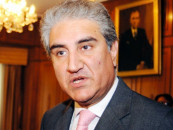
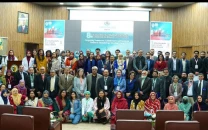
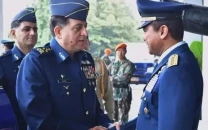

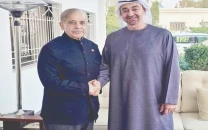












COMMENTS
Comments are moderated and generally will be posted if they are on-topic and not abusive.
For more information, please see our Comments FAQ